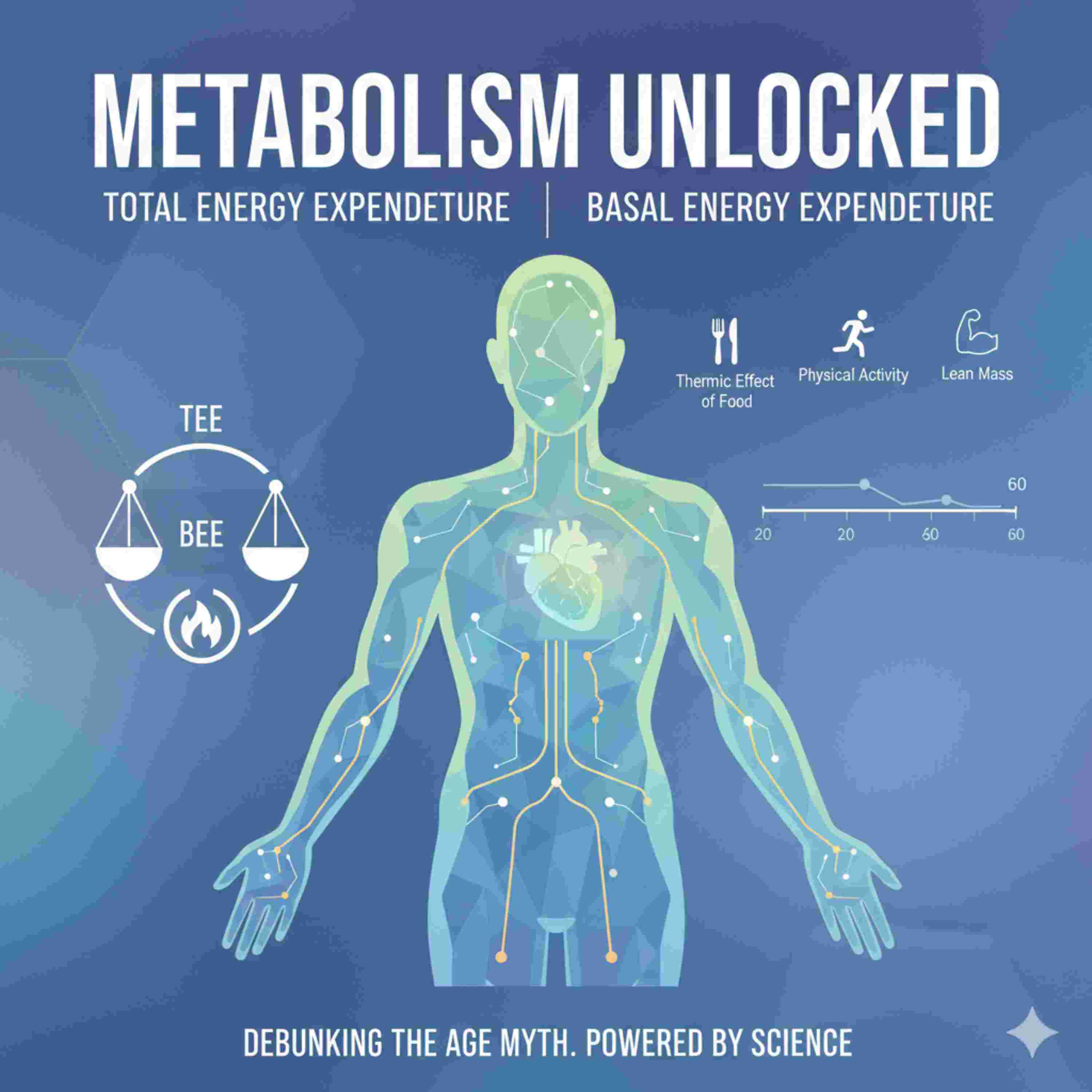

This episode provides an overview of Total Energy Expenditure (TEE) and Basal Energy Expenditure (BEE), emphasizing their definitions, measurement methods, and patterns across the human lifespan. It explains that TEE is the total of all calories burned, comprised mainly of BEE (the energy needed for basic functions at rest), the Thermic Effect of Food, and Physical Activity Energy Expenditure. Contrary to common beliefs, I explain that metabolism remains stable from ages 20 to 60, and midlife weight gain is primarily linked to lifestyle shifts rather than a sudden slowdown. The episode stresses the importance of objective measurement techniques, such as doubly labeled water for TEE, and highlights that body composition, particularly lean mass, is the main determinant of BEE. Finally, it corrects misconceptions regarding the impact of exercise and notes that metabolism declines gradually only after age 60, largely due to loss of lean tissue.
Sources:
Herman Pontzer, Yosuke Yamada, Hiroyuki Sagayama, Philip N. Ainslie, Lene F. Andersen, Liam J. Anderson, Lenore Arab, Issaad Baddou, Kweku Bedu-Addo, Ellen E. Blaak, Stephane Blanc, Alberto G. Bonomi, Carlijn V.C. Bouten, Pascal Bovet, Maciej S. Buchowski, Nancy F. Butte, Stefan G. Camps, Graeme L. Close, Jamie A. Cooper, Richard Cooper, et al. Daily energy expenditure through the human life course. Science, 373(6556):808–812, 2021. doi:10.1126/science. abe5017.
Kay Nguo, Helen Truby, and Judi Porter. Total energy expenditure in healthy ambulatory older adults aged ≥80 years: A doubly labelled water study. Annals of Nutrition and Metabolism, 79(2):263–273, 2023. doi:10.1159/000528872.
John R. Speakman, Jasper M. A. de Jong, Srishti Sinha, Klaas R. Westerterp, Yosuke Yamada, et al. Total daily energy expenditure has declined over the last 3 decades due to declining basal expenditure not reduced activity expenditure. Nature Metabolism, 5(4):579–588, 2023. doi:10.1038/s42255-023-00782-2.
Marie-Pierre St-Onge and Dympna Gallagher. Body composition changes with aging: The cause or the result of alterations in metabolic rate and macronutrient oxidation? Nutrition, 26(2):152–155, February 2010. doi:10.1016/j.nut.2009.07.004.